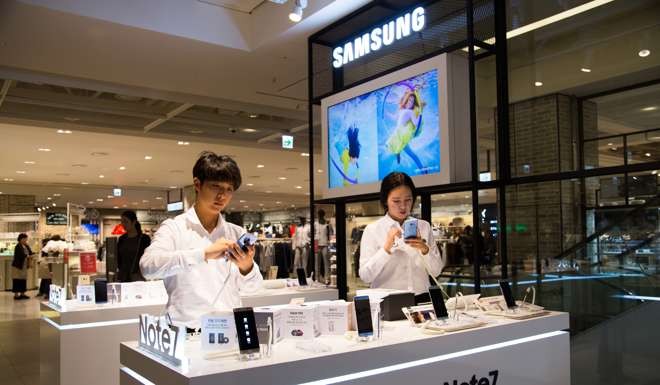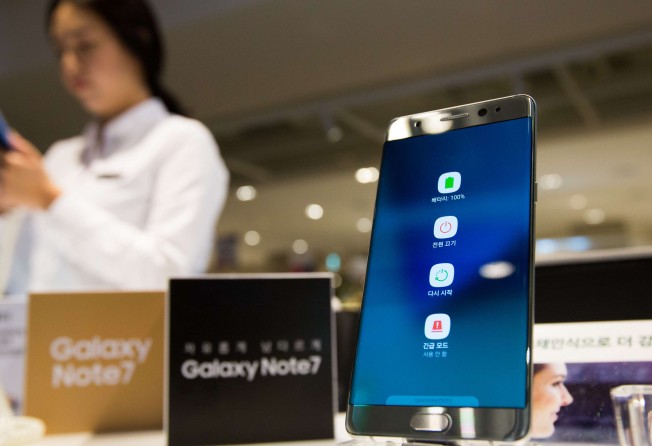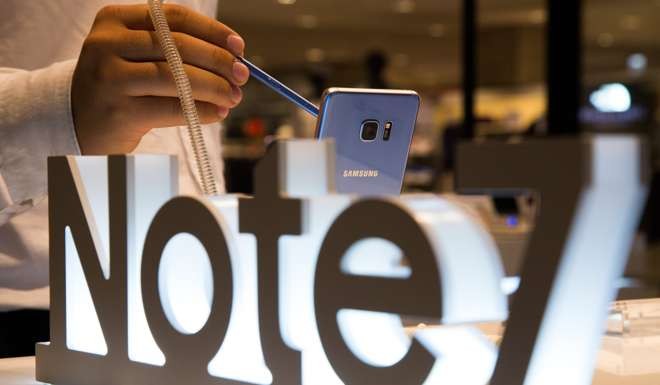
Samsung should be broken up into two companies: US-based activist investor Elliott Management
Elliott urges listing of company in exchange like Nasdaq

Samsung Electronics Co. is being urged by activist investor Elliott Management Corp. to restructure a business that spans Galaxy smartphones, televisions, semiconductors, screen displays and other consumer electronics.
In a 10-page letter and 31-slide deck released publicly and to Samsung’s board on Wednesday, affiliates of Elliott -- Blake Capital LLC and Potter Capital LLC -- called on the company to streamline and break into two, dual-list its operating company on a US exchange such as Nasdaq, pay shareholders a special dividend of 30 trillion Korean won (US$27 billion) as well as ongoing regular dividends, and improve governance by adding three independent board members.

Separating Samsung into an operating company and a holding company would deliver both organisational and tax benefits, while simplifying now-complex family holdings and treasury stock that are an overhang on Samsung’s valuation, according to Elliott.
Dual-listing the separated operating company on Nasdaq would boost trading volumes and allow more international investors exposure to the core electronics business, helping Samsung trade higher, Elliott said.
The detailed proposal comes at a critical time for the South Korean electronics conglomerate. The company has been operating without longtime Chairman Lee Kun-Hee, who has been hospitalized, while also trying to navigate the aftermath of the troubled launch of its latest Galaxy Note smartphones, which had to be recalled after batteries were bursting into flames.
Samsung heir apparent Lee Jay Yong, who’s been helping to run the company since his father suffered a heart attack in 2014, was nominated to the company’s board last month, teeing him up for a bigger role. Samsung has said Jay Y., 48, would become more involved in strategic decision-making.
Now co-vice chairman, he’s expected to be formally elevated to the nine-person board after a shareholder vote this month. Because scions in South Korea don’t typically succeed a living parent, it’s unclear when he would ascend to the top job.

Entities controlled by Elliott, the hedge fund run by billionaire Paul Singer, own about 0.62 per cent of Samsung. International investors own almost 60 per cent of Samsung, and two-thirds of the company’s shareholders would have to vote in favour of such a sweeping restructure.
It’s not Elliott’s first foray into Korean corporate governance. Last year, Singer’s Elliott Associates LP started a proxy fight to contest the proposed merger of two of Samsung’s units, in which the Lee family’s Cheil Industries Inc., Samsung’s de facto holding company, bid to acquire Samsung C&T Corp., a publicly traded construction company that owned more than US$10 billion in shares of Samsung Electronics and other Samsung Group companies.
In that battle, Samsung narrowly defeated Singer when Samsung C&T investors accepted an all-stock buyout from Cheil. Elliott’s proposal Wednesday includes a call for Samsung C&T to be merged with the holding company after the parent separation “on fair terms.”
Elliott’s current proposals “will deliver better capital returns, better corporate governance, and enhanced shareholder value, for all Samsung Electronics’ shareholders -- whilst simplifying, and retaining the founding family’s controlling interest in, the current Samsung group corporate structure, for the benefit of all stakeholders,” the activist wrote in the letter.